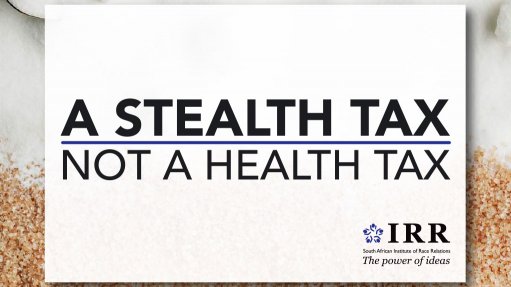
The cash-strapped South African government needs to bring in more revenue but is reluctant overtly to raise the VAT rate, which would unleash a political storm. Instead, it is planning to raise some R10.5bn – half of what an increase in the VAT rate from 14% to 15% would yield – by introducing a 20% tax on sugar-sweetened beverages (SSBs).
This tax, it claims, will help reduce obesity in South Africa, especially among the poor. As evidence, it cites a recent academic study or ‘mathematical model’ developed by Professor Karen Hofman of Wits University, among others. However, this study has no hard data or credible evidence to substantiate its conclusions. Instead, it rests on five assumptions unlikely to hold true in the real world. The study also acknowledges that a 20% SSB tax might reduce the number of obese South Africans by a mere 32 610 people.
At the same time, a comprehensive recent study by the McKinsey Global Institute of 44 anti-obesity interventions being used around the world shows that sugar taxes are among the least effective. They nevertheless get by far the most media attention, which helps skew policy decisions in their favour. That sugar taxes yield useful amounts of revenue is also, of course, why governments prefer them to initiatives known to work far better in countering obesity.
The Institute of Race Relations policy paper